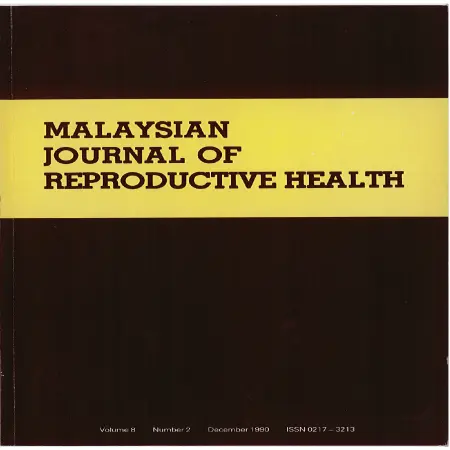Browse by Type
Results for Item type : "Article"
|
|
Konseptual kualiti hidup dalam konteks golongan pesara di Malaysia
Item Type: Article
Editor:
Year: 00/12/2021
Abstract: Quality of life carries a more complex meaning in explaining the context of an individual's life status, whether they are satisfied and happy with their living conditions or not. The phenomenon of quality of life can be measured by looking at indicators in various aspects whether monetary or non-monetary. This study was conducted to examine what the meaning of quality of life is in the context of retirees in Malaysia. In addition, this study was also conducted to see what indicators affect the quality of life, especially for retirees in Malaysia. In order to achieve the objectives of this study, a qualitative method was used, particularly working on reading sources from previous studies. The sources were screened through Scopus access. The main findings of this study found that there are various indicators that affect the quality of life
retirees in Malaysia and can be divided into two categories, namely monetary which consists of economic indicators, and
residence. While non-monetary consists of indicators of social support, health and family life. Therefore, this study will analyze and conceptually describe the quality of life of the retirees in Malaysia in a more comprehensive way through research on national policies and policies, as well as see a brief comparison with other countries.
|
|
|
|
|
|
Knowledge, attitude and practice on female sexual dysfunction (mati putik) among women in Kuantan, Pahang
Item Type: Article
Editor:
Year: 00/12/2021
Abstract: Female sexual dysfunction or also known as ‘mati putik’ can be defined as women with lack of sexual desire, difficulty in arousal, inability to reach orgasm, pain during intercourse, failure to feel pleasure from sex or anxiety about sex performance. In Malaysia, infidelity or sexual relationship was in the top reasons of divorce cases. Hence, this study aimed to determine the level of knowledge, attitude and practice on female sexual dysfunction among female in Kuantan, Pahang. A total sample of 100 married women was randomly selected based on the classification in inclusive and exclusive criteria.
|
|
|
|
|
|
Kanak-kanak, kemiskinan dan literasi digital: ke arah masa depan digital yang positif
Item Type: Article
Editor:
Year: 00/12/2021
Abstract: Children living in poverty are often denied the experience and ability to use digital media that is beneficial and valuable. Often these children do not have access to digital media and consequently they do not understand the potential of digital technologies. Children from low-income B40 families living in 'Pusat Perumahan Rakyat' (PPR) are a segment of society that may be affected. This study attempts to offer approaches that can help these children by accessing their level of digital media use and digital skills first. A telephone survey of 308 children living in PPR was conducted in March 2021. The study found that children have limited access to digital devices.
|
|
|
|
|
|
Kemiskinan haid: krisis kesihatan awam yang perlu diakhiri
Item Type: Article
Editor:
Year: 00/12/2021
Abstract: Menstrual poverty is a situation when individual face difficulties in obtaining sanitary napkins (pads) or tampons due to financial constraints. It also refers to the lack or absence of sanitation facilities for managing menstruation such as no water supply or no proper waste disposal (sanitary pad) and no privacy to manage menstruation. In addition, lack of knowledge about menstruation and its management is another component of ‘menstrual poverty’. Awareness about ‘menstrual poverty’ needs to be created among the community and other stakeholders such as authorities associated with family and community institutions as well as volunteer organizations. Affected individuals also need to be empowered to speak out about the issues they face. With the pooling of resources and action from all stakeholders, this issue of ‘menstrual poverty’ can be addressed.
|
|
|
|
|
|
K.A.P. Study of Family planning among married Orang Asli Women of Hulu Langat District, Selangor Darul Ehsan, Malaysia
Item Type: Article
Editor:
Year: 00/00/1990
Abstract: A study of knowledge, attitude and practice was carried out among sixty nine married Orang Asli women in the district of Kuala Langat. The study showed that only a small proportion of the women were using family planning methods. About half of the study women were still uncertain with regards to their attitude towards family planning. The findings also showed that there was no diversity of the methods with oral contraceptive being the major choice. Majority of the husbands had indeed positive feeling towards family planning. The women also considered breastfeeding as a major method of contraception.
|
|
|
|









